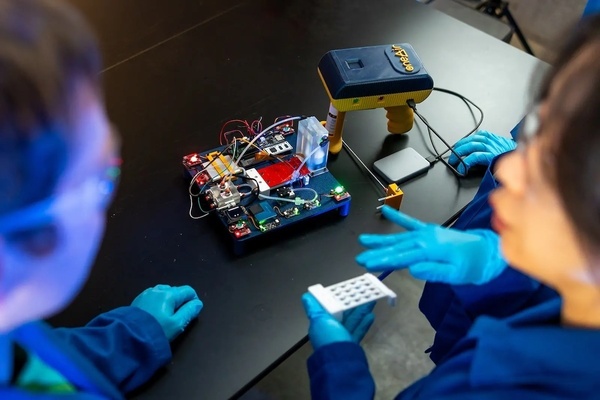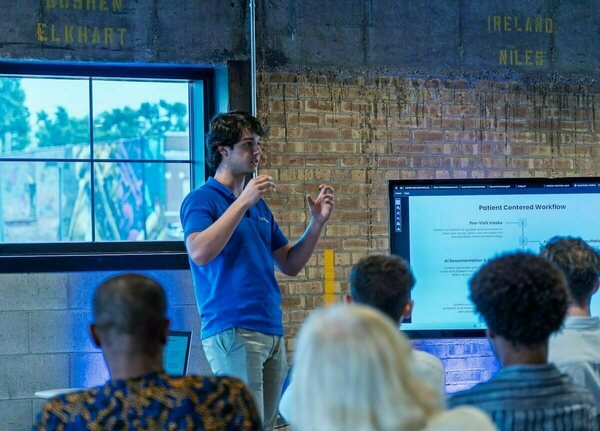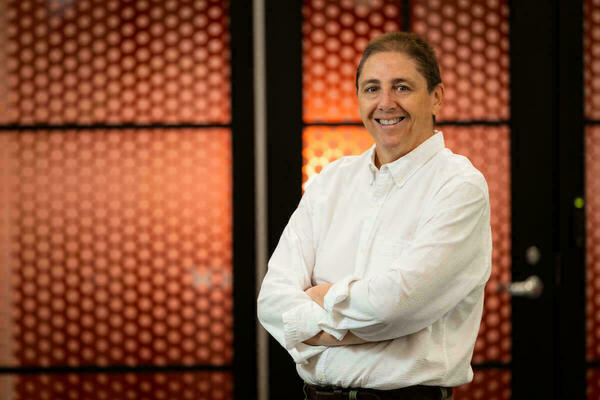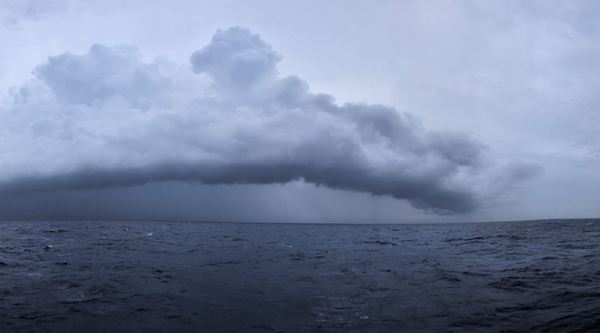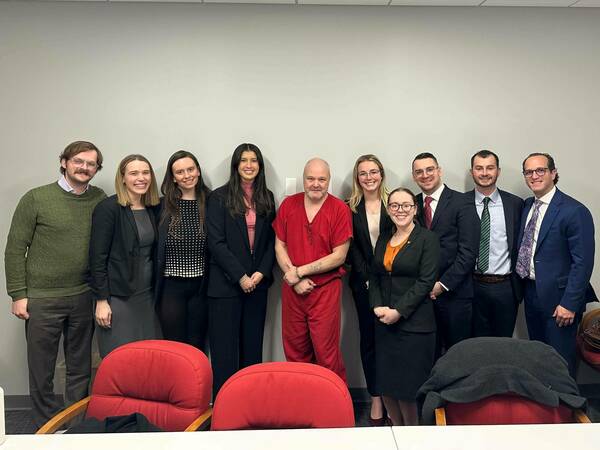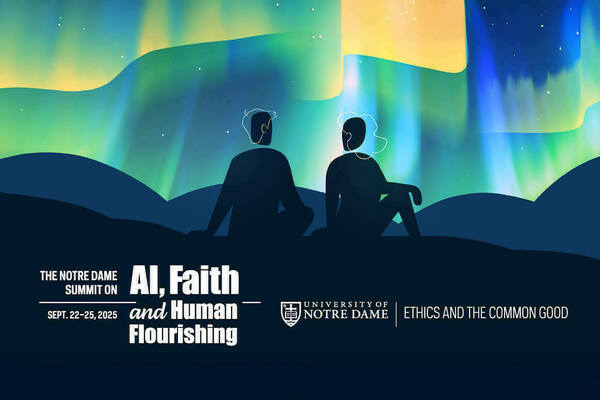Notre Dame Law School’s Religious Liberty Clinic Secures Asylum for Iranian Christian Convert Facing Persecution
Students from Notre Dame Law School’s Lindsay and Matt Moroun Religious Liberty Clinic recently helped secure asylum for an Iranian Christian convert who fled Iran after facing severe religious persecution. The case highlights the critical role of legal advocacy in protecting individuals fleeing state-sponsored religious oppression, a reality for millions of individuals worldwide. Refugee and asylum laws offer critical protection for those fleeing state-sponsored persecution. However, the process is often long and arduous, even for those fortunate enough to reach a safe country and request asylum.
The client, a former Muslim who converted to Christianity, had been forced to practice his faith in secret after converting, attending underground house churches to avoid persecution. When the church group was discovered, he was forced to flee the country. After departing, Iranian authorities sought to arrest the individual, charging him with apostasy—a crime punishable by death in Iran.
Apostasy, defined as the abandonment or renunciation of one’s faith, carries the death penalty in several countries. These laws contradict Article 18 of the Universal Declaration of Human Rights (UDHR) and the International Covenant on Civil and Political Rights (ICCPR), both of which uphold the fundamental right to freedom of thought, conscience, and religion. In Iran, Christian converts face the constant threat of arrest, torture, and execution solely for their faith.
Notre Dame Law students played an essential role in defending his right to safety and religious freedom. Under the guidance of attorneys Kimberlie Orr and Domenic Canonico, students participated in every phase of the asylum process, from initial client consultations to preparing filings, working with expert witnesses, and representing the client in immigration court hearings.
Gloria Wertjes and Shideya Parrilla, two Clinic students, traveled to California to represent the client in his final immigration hearing on January 24, 2025. Wertjes served as lead counsel during the hearing, while Rohan Vaidya had represented the client in a prior hearing. Their efforts, along with the work of Kathleen Casey and the guidance of Clinic attorneys, culminated in the successful grant of asylum by the immigration judge.
“It was an honor to represent our client in court for a successful grant of asylum,” said Wertjes. “Advocating for someone fleeing global religious persecution was a truly meaningful experience as a second-year law student. It was a rewarding opportunity to practice the legal and professional skills I developed through the Religious Liberty Clinic at Notre Dame.”
He expressed gratitude for the support he received from the Clinic. "While the thought of standing freely against the religious beliefs imposed on us since childhood—and the idea that there would be people to defend this free decision and support me—seemed extremely difficult, but the love and support of our Heavenly Father made it possible," he said. "A dedicated group played a significant role in bringing this to fruition through months of hard work.”
In addition to securing asylum, the Clinic team will assist him in filing petitions to reunite with his family.
Orr emphasized the importance of this work. “It is an extraordinary honor to train students to deliver high-quality pro bono legal services to individuals fleeing persecution. Using the law to protect a life and safeguard the future of an entire family is powerful. But the greatest privilege isn’t what we give; it’s what we receive. Our clients inspire us with their courage and resilience, reminding us never to take our freedom to worship for granted.”
Cannonico echoed this sentiment. “It was a privilege to witness this well-deserved victory for our client, who can now continue to practice his faith without fear. The judge’s decision reflects our country’s longstanding commitment to religious liberty and human dignity.”
This case is a powerful testament to the transformative impact of legal advocacy and the commitment of our students and faculty to the cause of religious freedom and dignity.
Originally published by at religiousliberty.nd.edu on February 11, 2025.
Latest Research
- Fighting for Better Virus DetectionAn electronic nose developed by Notre Dame researchers is helping sniff out bird flu biomarkers for faster detection and fewer sick birds. Read the story
- Notre Dame’s seventh edition of Race to Revenue culminates in Demo Day, a celebration of student and alumni entrepreneurship…
- Managing director brings interdisciplinary background to Bioengineering & Life Sciences InitiativeThis story is part of a series of features highlighting the managing directors of the University's strategic initiatives. The managing directors are key (senior) staff members who work directly with the…
- Monsoon mechanics: civil engineers look for answers in the Bay of BengalOff the southwestern coast of India, a pool of unusually warm water forms, reaching 100 feet below the surface. Soon after, the air above begins to churn, triggering the summer monsoon season with its life-giving yet sometimes catastrophic rains. To better understand the link between the formation of the warm pool and the monsoon’s onset, five members of the University of Notre Dame’s Environmental Fluid Mechanics Laboratory set sail into the Bay of Bengal aboard the Thomas G. Thompson, a 274-foot vessel for oceanographic research.
- Exoneration Justice Clinic Victory: Jason Hubbell’s 1999 Murder Conviction Is VacatedThis past Friday, September 12, Bartholomew County Circuit Court Judge Kelly S. Benjamin entered an order vacating Exoneration Justice Clinic (EJC) client Jason Hubbell’s 1999 convictions for murder and criminal confinement based on the State of Indiana’s withholding of material exculpatory evidence implicating another man in the murder.
- Notre Dame to host summit on AI, faith and human flourishing, introducing new DELTA frameworkThe Institute for Ethics and the Common Good and the Notre Dame Ethics Initiative will host the Notre Dame Summit on AI, Faith and Human Flourishing on the University’s campus from Monday, Sept. 22 through Thursday, Sept. 25. This event will draw together a dynamic, ecumenical group of educators, faith leaders, technologists, journalists, policymakers and young people who believe in the enduring relevance of Christian ethical thought in a world of powerful AI.








